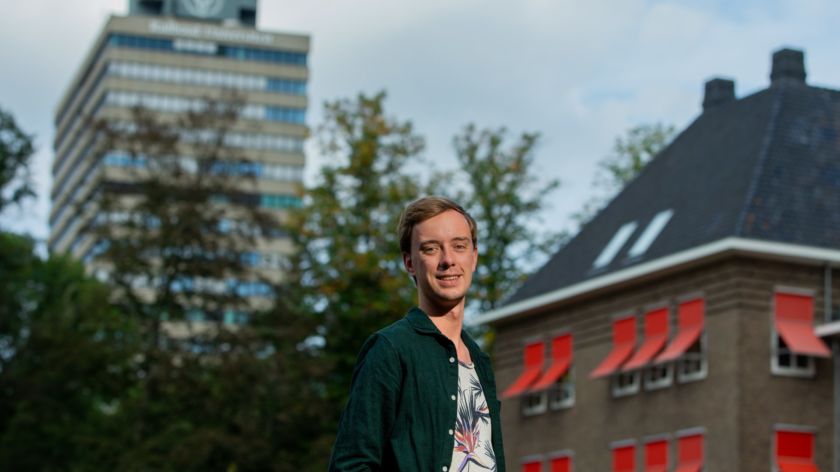-
 Mark Bunschoten. Foto: David van Haren
Mark Bunschoten. Foto: David van Haren
Student wellbeing and social safety remain important topics this academic year in Radboud University’s participation bodies. That is what the USR chair Mark Bunschoten thinks.
Last study year, Mark Bunschoten (21) was still on the programme committee at his study political science. By working on a project on student wellbeing, he noticed that participation suited him. That is why Bunschoten decided to run for the University Student Council (USR) on behalf of student party asap.
Since two weeks ago, the master’s student, who plays hockey in his spare time at Apeliotes, may call himself chair of the USR. ‘I am very happy with that’, says Bunschoten. ‘I think it will be fun to keep busy with substantive files, and engage in formal consultations with the Executive Board sitting in.’
Focal points
The USR is currently still working on a list of focal points for this year, which should be finished in October. Bunschoten is willing to reveal that social safety will definitely play a role in the document. Indeed, at the last joint meeting last academic year, the university code of conduct was approved, after a discussion that had lasted more than a year. During a Q&A at Radboud Rocks, journalist Tim Hofman called on students to send an email to the rector about the failure to adopt the code of conduct.
‘The USR wants to closely monitor how well the code of conduct functions’
The new code of conduct was implemented this academic year. It applies to all employees at Radboud University and puts into focus what is meant by integrity and what behaviour is and is not appropriate. Among others things, the code contains a policy for the use of alcohol and drugs and social media. The USR wants to closely monitor how well the code of conduct functions. ‘We must evaluate the code of conduct’, says Bunschoten.
Alcohol and drugs
Students who were a mentor parent during the orientation week last August had to sign a declaration of intent in which they promised not to push orientation participants towards the use of alcohol and drugs. ‘Will that become a true code of conduct or will it remain a declaration of intent?’, Bunschoten wonders. ‘The same goes for arrangements with student associations. Will those become more strict or more loose? That is what we will discuss.’
We must also keep monitoring student wellbeing, says Bunschoten. ‘Is the campus feeling coming back now students have returned to campus, or does that still need work?’
Compulsory attendance
The campus after covid will play an important role in this year’s participation bodies. The idea is that education will take place on campus as much as possible this academic year. Most of the practicums and work groups practising skills will be subject to compulsory attendance, as was the case before the pandemic. It is the faculties and programmes themselves that decide which forms of education require attendance.
‘Education must remain accessible to all students’
‘It is great that the university wants to attract as many students as possible to the campus after covid’, says Bunschoten. ‘At the same time, we need to ensure that education remains accessible to all students, including those who don’t have a student room, for example. As USR, we would like to keep a close eye in this regard.’
Translated by Jan Scholten.



